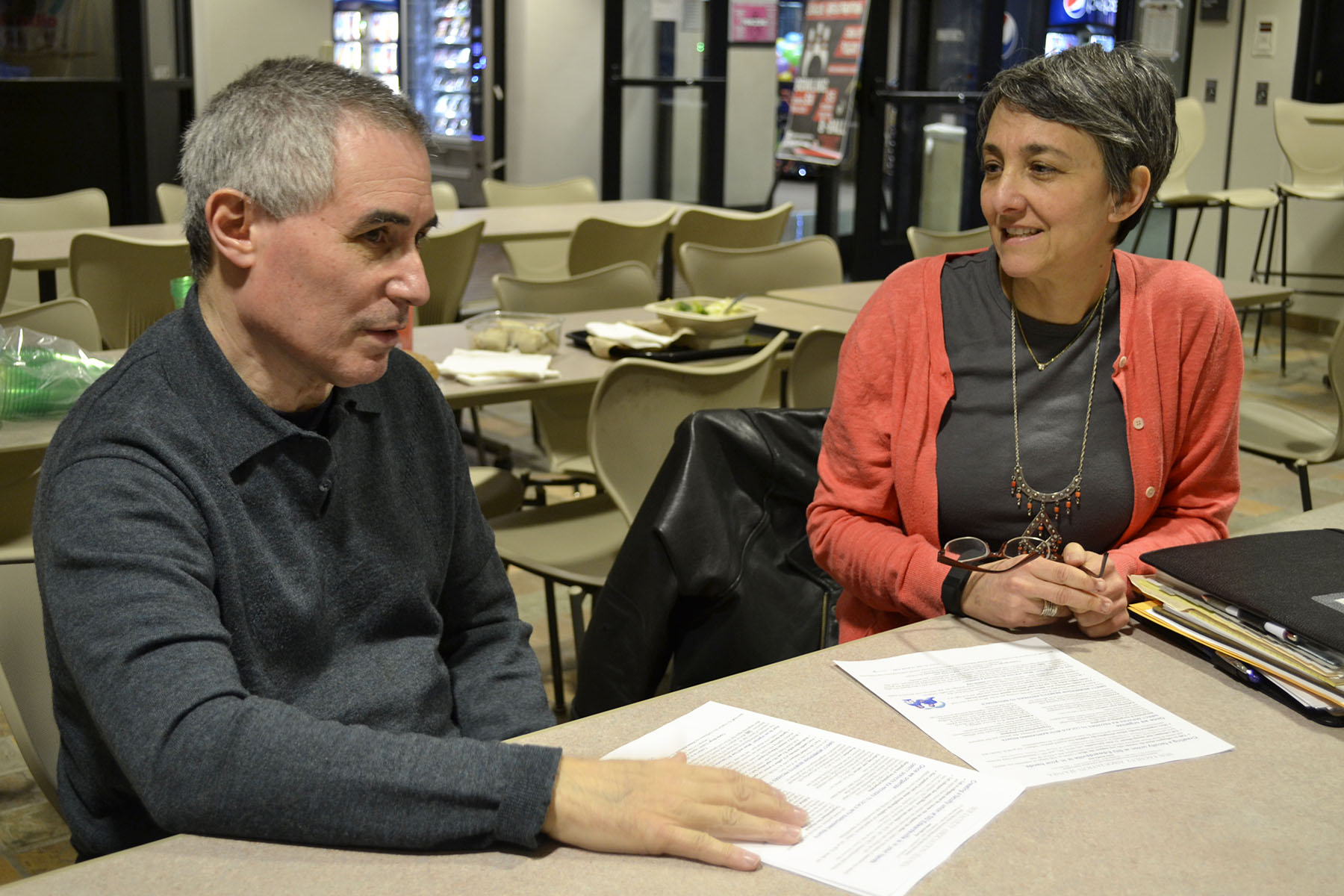SIUE faculty organizing under Rauner assault

By CARL GREEN
Illinois Correspondent
Edwardsville, IL – Gov. Bruce Rauner’s intransigent insistence on diminishing Illinois labor bargaining rights may prompt the creation of a new bargaining unit – an Illinois Education Association chapter at Southern Illinois University Edwardsville, called the Faculty Association.
The SIUE faculty has functioned for 50 years without a bargaining unit. But in only the first year of Rauner’s anti-union governorship, the faculty is on the organizing path, and there may be nothing Rauner can do to stop it.
The Faculty Association, formed as a non-bargaining local in 2000, represents about 400 tenured and tenure-track faculty. One of its co-chairs, English Professor Charles Berger, says the impetus is not the university administration, but the state government’s inability to provide funding for the university.
Said Berger: “Regardless of who the leaders are at SIUE or at the state level, we must have a voice at all levels – with an augmented role in decision-making on campus, and beyond the university where, frankly, we have no direct, unified voice for state lawmakers and the governor to hear.”
Sociology Professor Linda Markowitz, the other co-chair, notes that a bargaining unit would give faculty a stronger voice not only during this crisis but also in years to come.
“State and university leaders come and go, but many faculty are here their entire working lives,” she said. “Collective bargaining will allow us to enforce faculty-created operating papers, add to our grievance procedure neutral third-party arbitration, and give faculty a legally binding say in determining salaries, benefits and working conditions on campus.”
Rauner brought this on by refusing to agree with the Legislature on a state budget that does not include union-wrecking provisions attacking prevailing wage and worker compensation laws plus bargaining rights for public employees, among other issues.
As a result, state money for universities and community colleges has dried up, forcing schools to consider layoffs, furlough days, program cuts and even possible shutdowns. Lower-income students have been unable to get tuition assistance they were counting on through the Monetary Award Program after Rauner vetoed a bill to provide $721 million for that program.
After decades as a leading state for higher education, Illinois has dropped to 47th among the states in higher education funding per student. Rauner has also said he would eliminate academic tenure.
A bargaining unit would give the SIUE faculty a stronger voice in the campaign to fund higher education, union organizers maintain.
“Individuals writing their representatives has its place, but we need to muscle up as a faculty and join other organized groups pressing for fair treatment and respect from the state,” Berger said.
Michael McDermott, the Edwardsville-based higher education director for IEA-NEA, said that if more than half the faculty members sign cards recognizing the bargaining unit, no vote will be needed, and contract talks would begin this fall, under the Illinois Educational Labor Relations Act. The cards, he noted, also provide for the signers to become members of the union, making a second registration effort unnecessary.
McDermott said that so far, response from faculty members has been strongly in favor of a bargaining unit, and Markowitz said cards are coming in at a strong rate. Faculty who would like to join in the campaign may contact organizer David Vitoff at (618) 656-1010 or send email to Dave.Vitoff@ieanea.org.
“I think now is the time,” said Markowitz, who wrote the book, Worker Activism After Successful Union Organizing a while back and joined the SIUE faculty in 1995.
“We have a lot of faculty who seem very interested,” she told the Labor Tribune. “People are worried about being able to provide a great education for their students.
“We are workers are fighting for working conditions,” she added. “Our working conditions affect our students.”
Berger, on the faculty since 2001, said that while many faculty members are enthusiastic, others are concerned because the faculty has maintained a successful system of shared governance with the administration in which the faculty is consulted before decisions are made.
 “Our administration has been good about that,” he said. “Nobody has a problem with our administration. The problem is in Springfield.”
“Our administration has been good about that,” he said. “Nobody has a problem with our administration. The problem is in Springfield.”
The bargaining unit would provide faculty with a contractual and legally binding voice in future decisions about the university, he added.
“It’s something of an insurance policy, actually,” he said. “We are really the guardians of academic excellence.”
The IEA already represents faculty at SIU-Carbondale, where the bargaining unit was formed in 1996. Several other state university faculties are represented by the University Professionals of Illinois (UPI), an affiliate of the American Federation of Teachers.
Indeed, forming bargaining units has become a trend on Illinois campuses of late. In February, the 137 faculty members of University of Illinois-Springfield were certified as a bargaining unit. In May, 2014, faculty at University of Illinois-Chicago signed their first union contract. Non tenure-track faculty at University of Illinois Urbana-Champaign also formed a union in 2014.




Leave a Reply